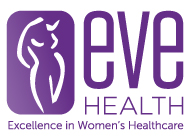Rightly so, Coronavirus is what everyone is talking about. There is a race against time for our scientists to develop an effective treatment and vaccine. However, whilst we are battling with the fallout of Coronavirus, I am urging all of my pregnant patients to not forget about the Influenza virus – one that we do have an effective vaccination and treatment for – and to book with their GPs over the coming weeks to receive their annual vaccination.
Influenza (flu) is a highly contagious respiratory viral infection that circulates each year in the winter months and can cause serious illness in previously healthy people. Unlike a cold, flu symptoms develop abruptly one to three days after infection, and can include:
- tiredness
- high fever
- chills
- headache
- sore throat
- coughing
- sneezing
- runny noses
- poor appetite
- muscle aches
Most people who get the flu will suffer from mild illness and recover in around four weeks. In some cases, severe illness and complications such as pneumonia can develop, which can result in hospitalisation and even death.
Due to the changes that occur to a woman’s body during pregnancy, pregnant women are at high risk of severe complications of influenza infection. Infection in the third trimester of pregnancy appears to be the most dangerous for the pregnant woman. Complications such as pneumonia are more common, with reports that pregnant women are 5 times more likely to be admitted to intensive care than other women who contract influenza. Additionally, influenza causes a 4 times greater likelihood of premature birth.
Vaccination
Vaccination is the best way of preventing the flu and any associated illness. Yearly flu vaccination is required as the vaccine changes in anticipation of the types of flu expected to be the most common each winter. The vaccination is 70-90% effective, with only five pregnant women needing to be vaccinated to prevent one case of serious maternal or infant respiratory illness.
Risk-benefit
The risk-benefit of vaccination during all stages of pregnancy has been carefully evaluated and should be given as early as practicable in each pregnancy. There is extensive evidence demonstrating the safe use of the flu vaccine in pregnant women with no evidence of harmful effects on the developing baby. If not already given, influenza vaccine can be given at the same time as the whooping cough vaccine, which is recommended between 20 and 32 weeks of pregnancy.
Babies whose mothers get a flu vaccine during pregnancy are protected from the moment of delivery and continue to be protected for up to six months after birth. That’s important because babies under six months are too young to get the flu vaccine themselves and the only way they can be protected is if their mother gets vaccinated during pregnancy. This is very important for newborns as those under 6 months of age are up to ten times more likely to go to hospital with the flu than older children.
Side effects
The side effects of a flu vaccine are mild. Up to one in ten adults will experience pain, redness and swelling at the site of injection, while fever and tiredness are less common. These side effects are not more common in pregnant women. It is not possible to actually catch the flu from having a flu injection.
The 2020 seasonal influenza vaccine is available from April and is recommended and free for pregnant women under the National Immunisation Program. These are available from your GP and many local pharmacies.
Dr Kellie Tathem is an obstetrician and gynaecologist who offers the complete range of women’s health services at Eve Health.
As an experienced obstetrician, Kellie has a calm and empathetic bedside manner and provides high-quality one-on-one personalised care. She enjoys planning individualised birth experiences whilst keeping safety a priority. While most pregnancies remain uncomplicated, when required Kellie has considerable capability in managing pregnancies complicated by prematurity, diabetes and complex maternal medical problems. She offers delivery at the Mater Mothers’ Private Hospital.
Kellie strongly believes in empowering women by providing them with the knowledge to make an informed choice about their healthcare.
Comments are closed.

